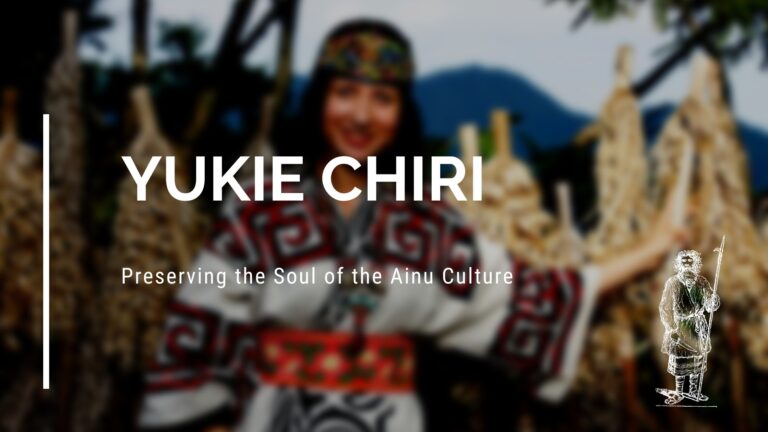Who is Yukie Chiri and why was she featured on Google Doodle?
In the annals of history, there are individuals who emerge as unsung heroes, dedicated to preserving and celebrating their culture against all odds. Yukie Chiri was one such individual, a prominent figure in the revitalization of the Ainu culture and a champion of its people. Born in 1903 in the village of Noboribetsu in Hokkaido, Japan, Chiri’s life was intertwined with the fate of the Ainu people, leading her to become a pivotal force in the preservation and promotion of their heritage.
This June was her 120th birthday, so artist Yumi Koizumi took the chance to commemorate this unsung hero of the Ainu people by featuring Chiri and Ainu culture in her doodle.
The Ainu People
The Ainu are an indigenous people of Japan, inhabiting the northernmost island of Hokkaido and surrounding regions. Their rich culture, dating back thousands of years, is marked by deep spiritual connections with nature, distinctive folklore, and a unique language. Over time, the Ainu people faced marginalization and discrimination, leading to the erosion of their traditions and way of life.
The early life of Yukie Chiri
Yukie Chiri was born into a family deeply rooted in Ainu traditions and customs. Chiri’s upbringing in the onsen resort town we know these days as “Hell Valley” fostered a profound appreciation for her heritage and fuelled her determination to protect it. Before Noboribetsu was popular as a retreat, it was a calm town inhabited by the Ainu, who made a living fishing until Japanese assimilation policies and bans on many Ainu cultural practices shafted the Ainu people and forced them to assimilate to Japanese culture.
Yukie Chiri was sent as a child to live with her aunt, Kannari Matsu, an oral storyteller of the people. There, she learned Ainu history and folklore and developed a strong appreciation for her culture.
Unfortunately she faced much discrimination growing up, and found it difficult to secure education and work due to her heritage. However she was an accomplished scholar, and she meticulously studied the Ainu language, traditional crafts, and folklore.
Becoming the voice of the Ainu
One fateful encounter forever changed the course of Chiri’s journey. She met Kindaichi Kyōsuke in 1918, a renowned linguist and anthropologist, who became her mentor and collaborator. He believed that Chiri’s bilingual ability and writing talent could help in preserving the oral histories and culture of the Ainu people. Chiri embarked on extensive fieldwork, documenting Ainu songs, rituals, and ceremonies before they faded into obscurity. She wrote down oral stories, urekreku (riddles), utashkar (kid’s word games), and upopo (festival songs), as well as yukar (long stories). This was no easy task, as the Ainu had no writing system, and she had to first write the tales in the Latin alphabet, then translate them into Japanese.
The Ainu Shin’yoshu (Collection of the Ainu Chants of the Gods)
Chiri and Kindaichi aimed to collect, analyse, and publish Ainu folklore, songs, and stories to ensure their survival for future generations. It was the first published work of Ainu oral stories and culture compiled by an actual Ainu person. Many stories are heroic tales featuring kamui (gods/spiritual beings), although some are humorous. Sadly, Yukie passed away at age 19 before she could see the publication of the novel, but her unwavering dedication and pioneering research laid the groundwork for the recognition and revitalization of the Ainu people and their heritage.
Chiri’s tireless efforts resulted in the preservation of invaluable aspects of Ainu culture that were on the brink of being lost forever. Her meticulous documentation of Ainu folklore, songs, and rituals serves as a timeless archive, allowing future generations to connect with their roots and understand the depth of their cultural legacy.
In recent years, there has been a growing recognition of the Ainu people and their cultural rights in Japan. Efforts to acknowledge and rectify historical injustices have gained momentum, with the Ainu Recognition Act passed in 2019, officially recognizing the Ainu as an indigenous people of Japan Yukie Chiri’s pioneering work undoubtedly played a significant role in fostering this positive change, bringing the Ainu culture to the forefront of national consciousness and paving the way for a more inclusive and equitable society.

